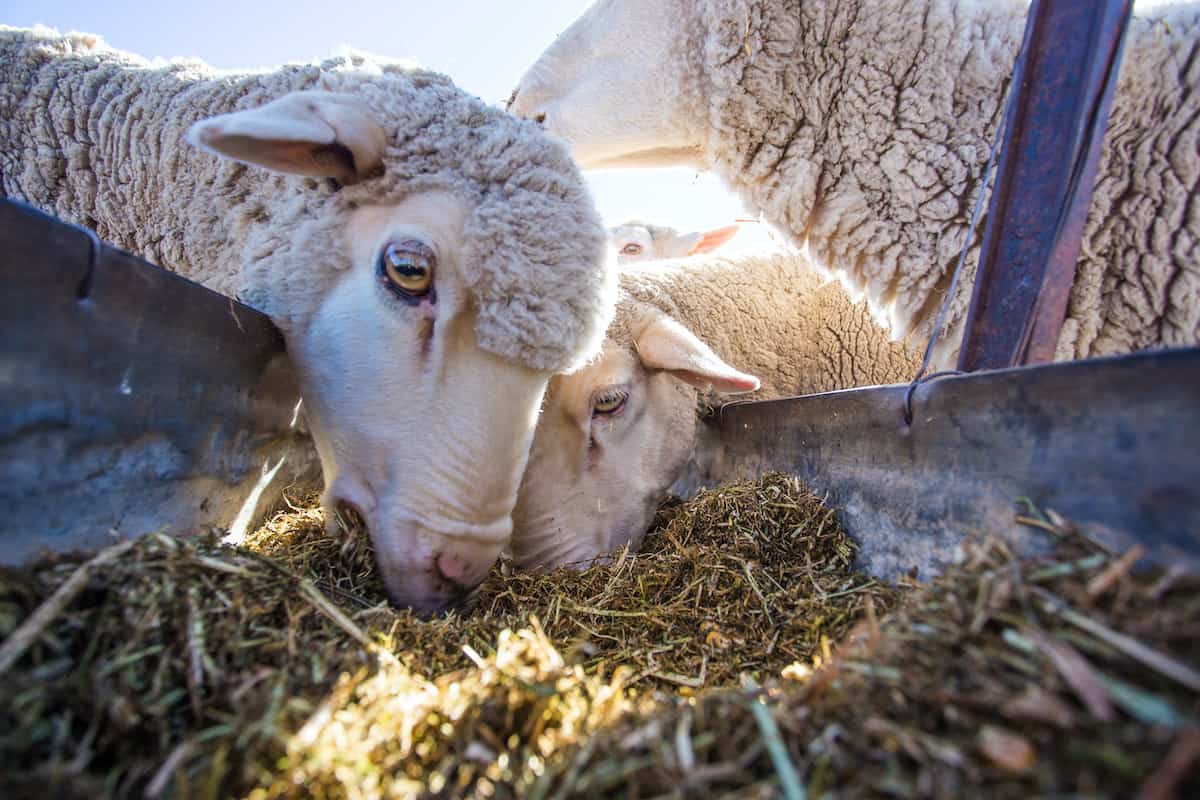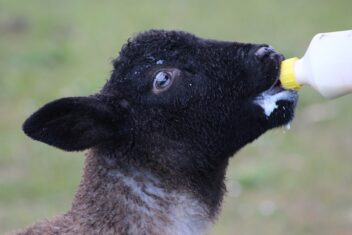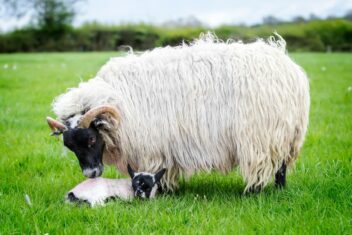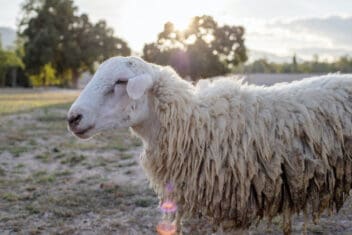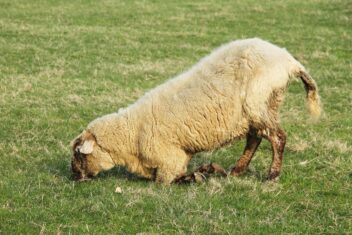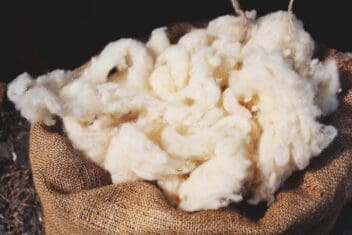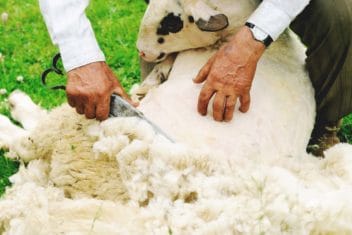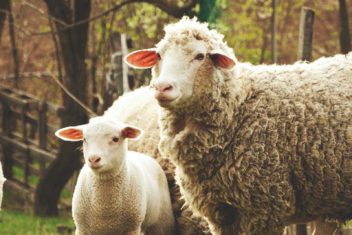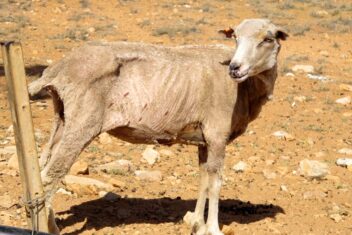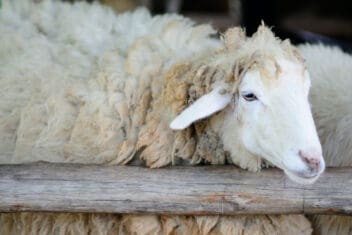If you raise sheep, it’s essential that you do some research into their nutritional requirements. Unlike humans, sheep can’t just pop out to the drugstore and pick up a multivitamin to fill in the gaps!
Instead, as the shepherd, it’s up to you to invest in the right vitamins and minerals for sheep.
Minerals are essential to the life of any animal, and sheep are no exception. They need the right vitamins and minerals to raise their lambs, produce meat, come into milk, and produce healthy wool. Fail to provide the proper minerals, and you might notice severe issues in your flock, such as weak lambs, below-average fertility, and poor immunity.
In this article, I will tell you about the types of mineral supplementation that sheep need – as well as some of the options you have for feeding them out.
Sheep Mineral Requirements
All sheep require minerals in order to thrive. While sheep can get most of what they need from grain and pasture, they still might not get everything they need.
Mineral requirements vary depending on their age, reproductive stage, parasite load, and a few other factors. Luckily, sheep are pretty smart at figuring out what they need, and offering mineral supplements free-choice will encourage them to get just enough of what they need. In other words, sheep won’t gorge themselves on minerals – they know how much to eat to get what they require.
If you’re new to feeding sheep, you might be wondering what the difference between supplements and minerals is. The reality is that the only difference is in the verbiage. Supplements are products that add nutritional value to your sheep’s diet, while minerals are just an example of supplements.
For the most part, supplements for sheep consist only of mineral supplements. There are a few vitamin products you can add, too, but these are really only used in the rare incidence of particular vitamin deficiencies. Mineral supplements, on the other hand, should be a regular part of your sheep care.
What to Look for in a Good Sheep Mineral
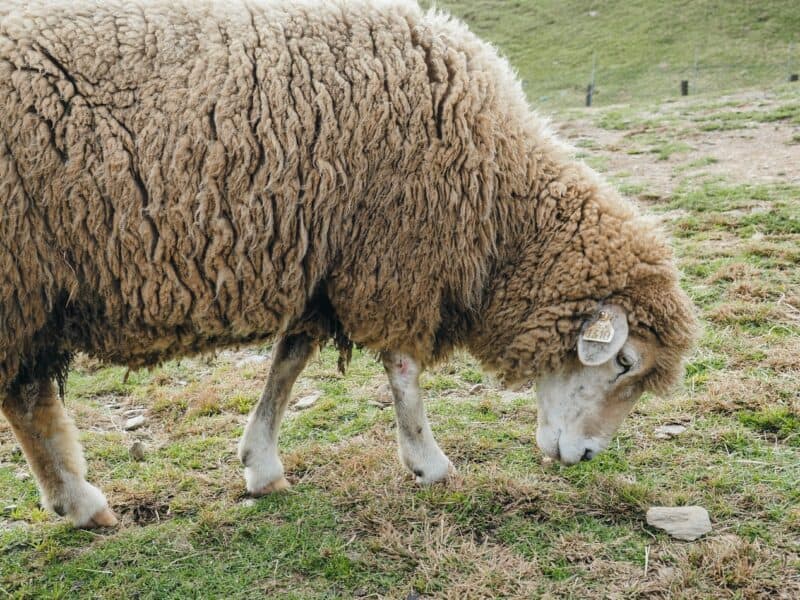
Not all mineral supplements will do the trick. Lots of people attempt to forego the process of feeding minerals to their sheep, assuming that their sheep will get everything they need from their feed.
While that is sometimes true, it is very rare for sheep to meet all of their nutritional needs from grain and hay alone. Many people raise sheep because they are inexpensive livestock, and while mineral supplementation can be a bit costly, there are serious consequences that could be avoided by just investing in the right mineral.
The best sheep mineral won’t necessarily be the cheapest ones. In fact, some cut-rate sheep minerals don’t offer the best nutrition to the sheep when they need it most, as they aren’t that absorbable.
Nutritional Requirements
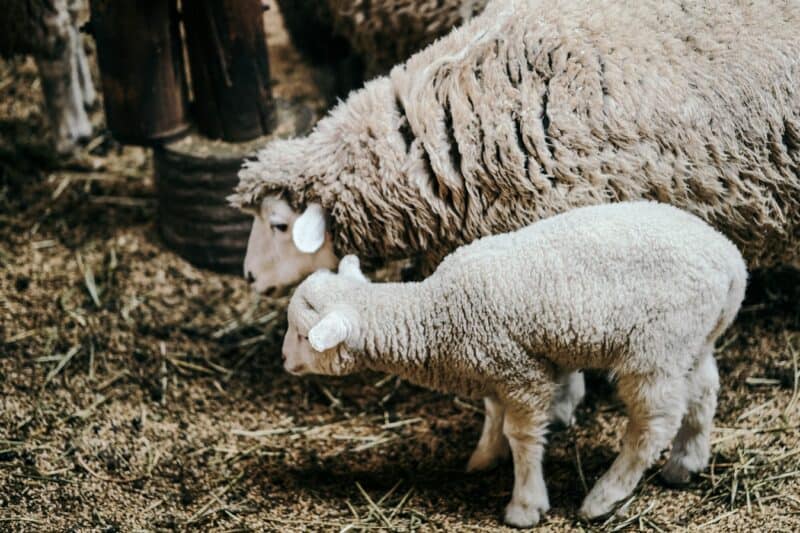
A good supplement will provide nutrition to animals in addition to their basic feed ration. In general, you will want to look for several particular minerals in a sheep supplement. The exact percentages required by your sheep will vary depending on what stage of life they are in (for example, early pregnancy, late pregnancy, lactating, young lamb, etc) as well as whether they are actively foraging.
Required minerals include:
- Potassium
- Calcium
- Phosphorous
- Magnesium
- Sulfur
- Sodium
- Iron
- Copper (more on this later)
- Manganese
- Vitamin D
- Selenium
- Vitamin A
- Zinc
- Vitamin E
Some of the most common minerals in which sheep are deficient are sodium and selenium. Selenium, in particular, is deficient in many soils in the United States so sheep selenium requirements are increased here. Therefore, you will want to make sure your mineral supplement includes ample amounts of this nutrient.
You might be thinking, “the more, the merrier, right?” but that’s not the case with all minerals. Some, like iron, can interfere with the uptake of other minerals, like zinc, when consumed in excess. Therefore, you’ll want to make sure your percentages match the needs of your sheep in their particular life stages.
You can find detailed percentages of recommended minerals and vitamins for sheep in this table.
Types of Mineral Supplements for Sheep
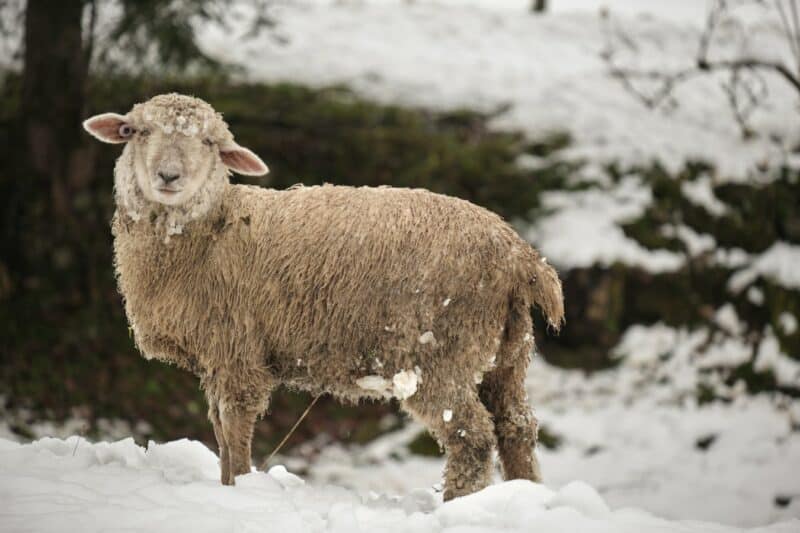
Sheep have additional mineral needs in the winter, when pasture is scarce.
1. Blocks
A sheep mineral block is a hard block, generally mounted on the barn wall or placed on the ground. There are also special mineral block feeders. Your sheep will chew and lick on these blocks as they see fit. If you raise cows or other livestock, you might be used to seeing mineral supplements in this form.
2. Licks
A sheep salt lick is another option. This generally consists of pure livestock salt or a mineral mixture and is hung from a rope (in one consistent chunk) near the water supply of your sheep. There are also medicated lick tubs available for sheep with particular issues or deficiencies.
3. Protein Tubs
You can also use a protein tub, which contains a mixture of minerals with extra protein. You shouldn’t use protein tubs for your entire flock but instead, just add it for ewes in late pregnancy. The extra protein is required for the developing lambs. These are meant to be placed right on the ground.
4. Loose Supplement
I prefer to feed my sheep loose mineral supplement. These can be poured directly into a mineral feeder. I like loose minerals because it’s easy to feed and store. The only downside is that you need to be careful about water getting inside, as it can cause the mineral to clump up and become unpalatable.
You also need to avoid mixing it into your sheep’s grain, if you feed grain. Like I mentioned before, sheep know exactly how much mineral they need, and mixing it into the grain can cause overfeeding of certain minerals.
Feeding loose minerals is a great way to save money since you can buy it in a 50lb bag. Sheep tend to have an easier time digesting it in this form, too.
A sheep mineral mix like this is what I recommend. It is meant to be mixed with 50lbs of salt, making it an economical choice. It also promotes good hoof health with an iodine and zinc supplement for sheep, too.
Can Sheep Have Copper?
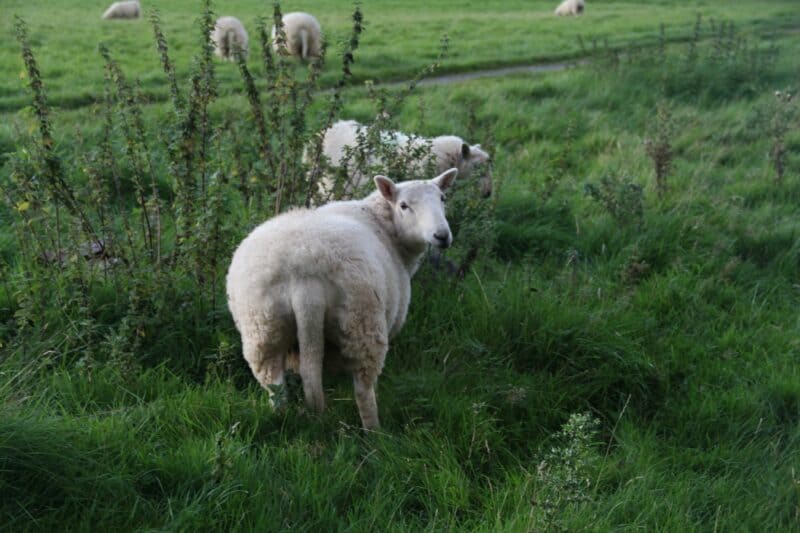
When you start raising sheep, you will quickly discover that sheep mineral is surprisingly hard to find and source in stores. Normal feed stores, which tend to stock horse and cattle minerals in bulk, are often deficient in options when it comes to supplementing sheep.
This next tip is very important – do not, under any circumstances, think you can get away with using a mineral supplement for another animal on your sheep.
Sheep are highly sensitive to copper – more so than goats, in fact, if you are raising goats. You cannot use a goat mineral supplement for your sheep, either.
When sheep consume copper, it accumulates in the liver at a much faster rate than any other livestock species. Therefore, a sheep mineral should contain no more than 500 milligrams of copper per kilograms of mineral mix (absolutely no more than 500 ppm, although 300 is a safer goal).
Another reason not to mix minerals into your grain is that some grain mixtures contain small amounts of copper, too. Though safe by themselves, the extra mineral can push the copper content over the edge.
Copper toxicity can occur suddenly and without warning. Susceptibility to copper toxicity varies among sheep breeds, but it’s definitely not worth playing around with – too much copper can kill your sheep.
How to Feed Minerals
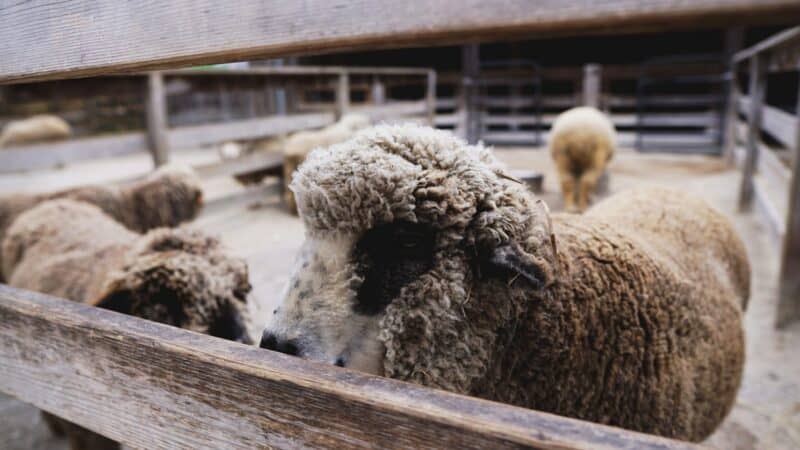
There are several ways you can feed minerals, all of which will vary in their effectiveness depending on what kind of mineral supplement you choose from the above list.
I always recommend investing in a separate dish or block holder. It should not be added to your sheep’s regular feed supply or fed alongside it in the same containers, as this can confuse your sheep.
Install a separate mineral feeder, ideally high enough so that small lambs can’t crawl inside (they like to do this as it feels safe, but it can cause your mineral to get wet and clumpy). Make sure your sheep never run out of minerals, especially when they’re close to lambing.
Keep the feeder out of the rain and out of the weather, too. Make sure your sheep have ample access to water, since adult sheep can drink up to four gallons of water each day depending on their needs and reproductive status.
How to Choose the Right Sheep Mineral

When you’re feeding sheep, it’s important that you choose a mineral that will suit the size of your flock, what you are currently feeding them (many bagged grains contain some minerals already, so you’ll want to take that into account) and how you will make these supplements available to your sheep.
Whether you choose blocks, licks, or loose sheep mineral is entirely up to you – just make sure you supplement your sheep at all times so that they continue to grow healthy and strong.
